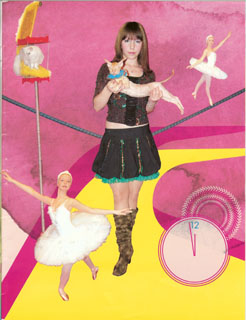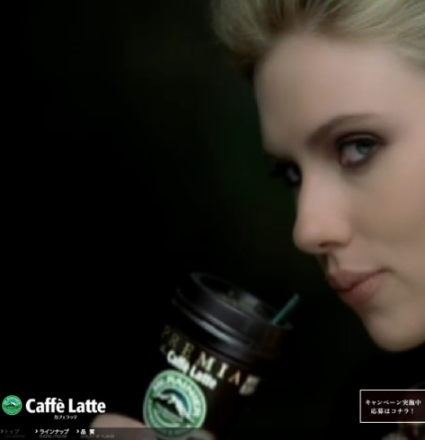Entries in Trademark Infringement (368)
Russian Clowns Sue Seattle Repertory Theatre Over Alleged Copycat Show
Counterfeit cat theater?
Last month, father-and-son Russian clowns Yuri Kuklachev and Dimitri Kuklachev filed suit in the Eastern District of New York against alleged impostors who have passed themselves off in the United States as the plaintiffs’ Moscow Cats Theatre troupe.
Among the defendants is the Seattle Repertory Theatre, which allegedly staged some of the “copycat” performances.

A promotional graphic from the defendants’ Web site
The complaint states the “Kuklachevs are world-famous clowns whose names are household names in many countries and among cat-lovers worldwide. Through the use of proprietary animal training methods, developed by Yuri Kuklachev, Plaintiffs became widely recognized as the world’s first performers to successfully train and perform tricks with such notoriously stubborn animals as cats.”
The complaint alleges that plaintiffs hired defendant Mark Gelfman to help market their tour. It claims that once plaintiffs left the United States, Mr. Gelfman filed a trademark application to register MOSCOW CATS THEATRE in the United States in his own name; registered the MoscowCatsTheatre.com domain name; and hired the other defendants to perform under the MOSCOW CATS THEATRE name and mark.
“The performances conducted by Defendants under the ‘Moscow Cats Theatre’ mark are very similar in nature to the ones performed by the authentic Kuklachev’s Moscow Cats Theatre, targeting the same audiences, in the same venues, using the same promotion methods,” the complaint states. “Even the [defendants’] cat show performer dresses in a very similar clown suit, wears similar makeup, hairstyle, and acts in a way very similar to Kuklachev, leading to numerous cases of actual mistaken identity by the audience.”
The complaint claims federal and common law trademark infringement, dilution, cybersquatting, and violation of plaintiffs’ rights of publicity.
Neither Mr. Gelfman nor most of the other defendants (including the Seattle Rep) has yet appeared in the lawsuit or answered plaintiffs’ complaint.
The case cite is Kuklachev v. Gelfman, No. 08-2214 (E.D.N.Y.).
Props to the Slog for breaking the Seattle angle of this story.
Hendrix Electric Vodka Case Doesn't Settle in Mediation; Motions Pending
 The parties’ trademark claims in Experience Hendrix, LLC, v. Electric Hendrix, LLC — regarding the defendants’ ability to use Jimi Hendrix’s name, likeness, and signature in connection with their vodka products — will be decided on summary judgment. Or at trial. Or both. But by the looks of the Notice of Occurrence of ADR Procedure the parties’ mediator filed on June 27, the case isn’t going to settle.
The parties’ trademark claims in Experience Hendrix, LLC, v. Electric Hendrix, LLC — regarding the defendants’ ability to use Jimi Hendrix’s name, likeness, and signature in connection with their vodka products — will be decided on summary judgment. Or at trial. Or both. But by the looks of the Notice of Occurrence of ADR Procedure the parties’ mediator filed on June 27, the case isn’t going to settle.
The notice states the parties mediated the case on June 26 but “did not reach a settlement.”
The parties have three pending motions for summary judgment: two by the plaintiffs and one by the defendants. Last week, Western District Judge Thomas Zilly struck all court deadlines in the case pending his disposition of these motions. Oral argument is scheduled for July 11.
Case background here, here, and here.
The case cite is Experience Hendrix, LLC v. Electric Hendrix, LLC, No. 07-338 (W.D. Wash.).
Will Supreme Court's Decision on Punitive Damages Affect Trademark Cases?
On June 25, the U.S. Supreme Court found in Exxon Shipping Co. v. Baker that punitive damages under maritime common law cannot exceed the amount of compensatory damages when such awards are “substantial.”
Will this decision affect punitive damages awards in trademark cases?
It shouldn’t under federal law — even by analogy — because the Lanham Act does not provide for punitive damages. Section 35(a) (15 U.S.C. § 1117(a)) authorizes courts to enhance damages, but only to the extent the award constitutes compensation and “not a penalty.”
However, Section 35(a) does not extend to supplemental state law claims. As the Supreme Court recognized, ”[s]tate regulation of punitive damages varies.” It noted that Washington and three other states only permit punitive damages when authorized by statute. Other states limit punitive damages in other ways, though the court stated that “punitive damages overall are higher and more frequent in the United States than they are anywhere else.”
Indeed, many states allow punitive damages in state-law trademark claims. For example, the District of Oregon jury’s recent award of $305 million in Adidas America, Inc. v. Payless Shoesource, Inc., included $137 million in punitive damages. (STL post here; jury verdict form here.)
While Exxon Shipping’s limit of punitive damages to the amount of compensatory damages in some cases does not appear to apply literally to punitive damages awards under state law, it’s obviously an influential yardstick.
Payless Shoesource thinks so. On June 26 it filed the opinion as supplemental authority in support of its motion for a new trial on the issue of damages.
The case cite is Exxon Shipping Co. v. Baker, 554 U.S. __ (2008), No. 07-219.
Further discussion on the case’s implications beyond maritime law here (via the SCOTUS Blog).
Will a Cryptic "Juror Letter" Unravel Adidas' $300 Million Victory?
Is this another instance of jurors playing Sudoku?
Cryptic docket entries about a “juror letter” and sealed court records suggest something’s gone awry in the Adidas v. Payless Shoesource case that resulted in what reportedly was the largest damages award ever in a case of trademark infringement.
On May 5, a nine-person jury in the District of Oregon found Payless Shoesource, Inc., liable for infringing Adidas America, Inc.’s three-stripe trademark and awarded Adidas a whopping $305 million. (STL post here; jury verdict form here).
Three weeks later, on May 27, the court entered on the docket an “Order - Setting a Telephone Conference to discuss a juror letter….” The telephone conference with the parties’ attorneys was set for 1 p.m. the same day.

The next docket entry states: “MINUTES of Telephone Conference: Juror letter discussed as stated on the record.” The entry does not provide any more information, though the court set an in-person status conference for 11:30 a.m. the next day.
No docket entry reveals what transpired during the in-court conference.
Two days later, on May 30, the court entered a scheduling order — under seal. The docket entry does not say what events the scheduling order governed.
The next apparently relevant entry, for June 9, states: “Order - At the parties’ request the Court is setting a briefing schedule as follows: Defendant’s Motion is due by 6/9/2008. Plaintiffs’ Response is due by 6/16/2008. Defendant’s Reply is due by 6/19/2008.” The docket does not reveal the subject matter of the briefs.
However, the next entry, also dated June 9, states: “Supplemental Motion for New Trial. Oral Argument requested.” The untitled motion was filed under seal. The docket states it was filed by Payless Shoesource.
The next three entries — the docket’s most recent — are all filed under seal. The docket describes them as “Memorandum in Opposition to Defendant’s Supplemental Motion for New Trial,” filed by Adidas; “Declaration of Stephen M. Feldman” (Adidas’ attorney); and “Payless’ Reply Brief in further support of Supplemental Motion for a New Trial,” filed by Payless Shoesource.
What is going on here? What did that “juror letter” say? Did it disclose juror misconduct? Attorney misconduct? Is it going to unravel Adidas’ $300 million victory? Even if it is, why all the secrecy?
Is John Grisham now writing the court’s docket entries?
The case cite is Adidas America, Inc. v. Payless Shoesource, Inc., No. 01-1655 (D. Or.) (King, J.).
STL thanks a savvy STL reader/tipster who wishes to remain anonymous for bringing this issue to light.
Starbucks Trademark Dispute Brewing Over Mr. Rainier Coffee Logo?

 I’ve heard rumblings about this but can’t get any confirmation. Is Starbucks suing a Japanese coffee company with a green-and-white concentric circle logo? That’s what this post from February 2006 — repackaged in another blog’s post this week — suggests:
I’ve heard rumblings about this but can’t get any confirmation. Is Starbucks suing a Japanese coffee company with a green-and-white concentric circle logo? That’s what this post from February 2006 — repackaged in another blog’s post this week — suggests:
“Starbucks is also suing Japan’s Mt. Rainier Espresso & Milk for copyright infringement. Mt. Rainier is a mountain in Seattle, which is the home of Starbucks. The Mt. Rainier logo of the Japanese company resembles the Starbucks logo.”

A Mt. Rainier coffee commercial features Scarlett Johansen and
a green-and-white concentric circle logo.
I assume the author means that Starbucks is suing Mt. Rainier for trademark infringement, given the context of the post. However, I haven’t been able to find anything else about this suit, if there even is one. I wouldn’t be surprised if there is (or was), given the the similarity between the designs and Starbucks’ vigilance in policing its mark. (Take the filing of its notice to extend time to oppose registration of Seattle’s Rat City Rollergirls’ logo, for example.)
That would be interesting, as Mt. Rainier apparently is no small-time player in the Japanese beverage market. Its commercials featuring Scarlett Johansen suggest financial muscle. (Click here to view two such commercials, one of which less interestingly also features the Seattle skyline.)
If anyone knows about this dispute — if there even is one — please share!